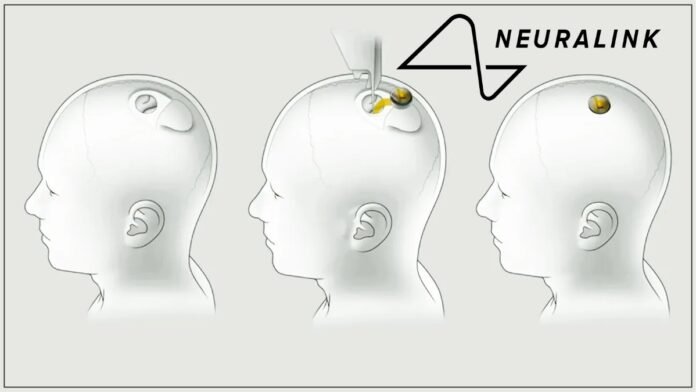
New Delhi: Elon Musk, the billionaire entrepreneur and visionary behind SpaceX and Tesla, announced Monday that his brain-computer interface startup Neuralink had successfully implanted a brain chip in its first human patient. The groundbreaking achievement marks a major milestone for the field of neurotechnology, which aims to create direct connections between the brain and digital devices.
Neuralink, which Musk co-founded in 2016, has the ambitious goal of enhancing human capabilities, curing neurological diseases, and eventually achieving a harmonious coexistence between humans and artificial intelligence. The company’s first product, called the Link, is a wireless device that is surgically inserted into the brain through a small hole in the skull. The Link is designed to record and transmit brain signals to an app that can decode users’ intentions and control external devices, such as computers, smartphones, or robotic limbs.
Musk revealed on X, the social media platform formerly known as Twitter, that the first human patient had received the Link implant on Sunday and was recovering well. He also shared that the initial results showed promising neuron spike detection, which means that the device was able to capture the electrical activity of the brain cells involved in movement. Musk did not disclose the identity or condition of the patient. Still, Neuralink had previously stated that it was seeking approval from US regulators to test its implant on people with quadriplegia due to spinal cord injury or amyotrophic lateral sclerosis (ALS).
Neuralink is not the only company working on brain-computer interfaces, which have been a subject of scientific research for decades. Another notable contender is Synchron, an Australia-based startup that has developed a different approach to implanting a device in the brain. Synchron’s product, called the Stentrode, is delivered through the blood vessels and does not require open brain surgery. The Stentrode is also intended to enable people with paralysis to control digital devices with their thoughts and has been implanted in six US patients as part of a clinical trial.

Both Neuralink and Synchron face significant technical and ethical challenges in their quest to unlock the potential of the human brain. However, they also offer a glimpse of a future where humans can interact with technology in unprecedented ways, and perhaps even transcend the limitations of their bodies.




















































